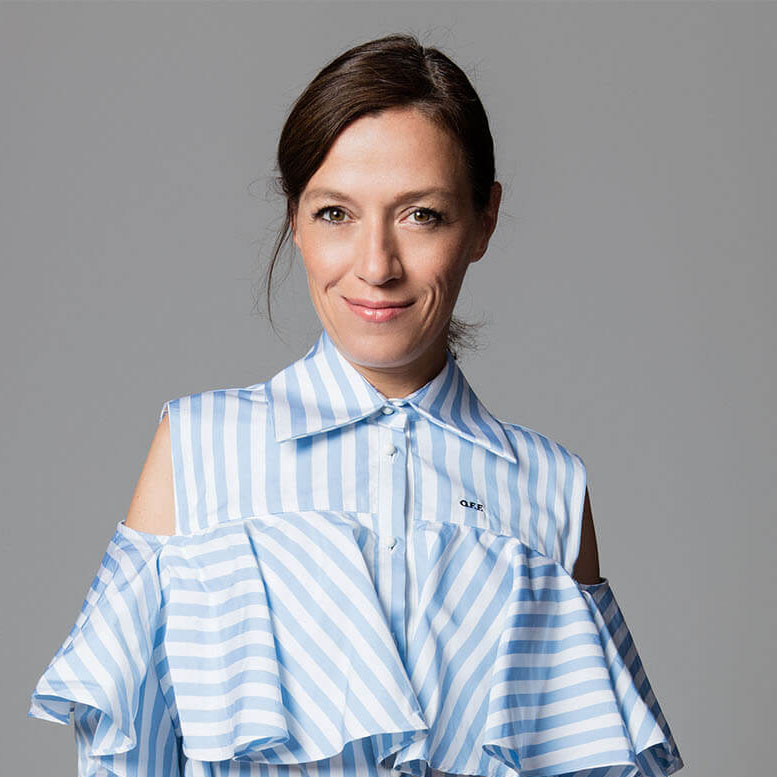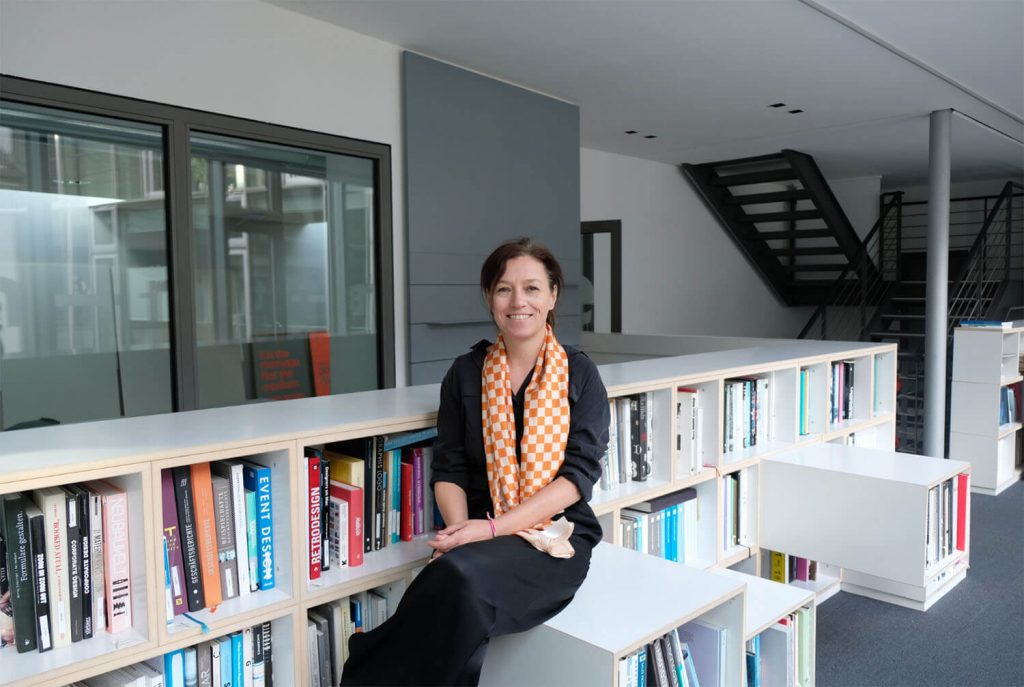Natascha Zeljko (she/her)
Diversity requires that you keep an open mind.

Interview by Belinda Duvinage.
That’s an interesting question. If you had asked me a few years ago, my clear answer would be: I am a journalist. Now, however, in recent months and years, it’s not so easy to answer it that way. Today, I am a journalist who is also an entrepreneur. Yesterday, I actually entered the professional field for the first time in a medical history form: entrepreneur. At first, I thought that sounded too highfalutin (Impostor Syndrome raises an eyebrow skeptically). But when you break it down, that’s what I do: I create and execute. There’s a value chain. I have responsibility for employees.
I have two wishes. One: Less camp formation and more genuine exchange across political boundaries. And that we become more open and positive with regard to our immigration and welcome culture.
That’s right. In 2018, I co-founded FemaleOneZero, a content platform focused on diversity and digitalization. CURAZE, on the other hand, is a network that connects startups and companies at its core, and also all other players in the innovation ecosystem. At the moment, we are in the process of linking these two companies and also bringing them together under one brand logic, under the umbrella brand CIRCULAZE.
Many, many calls and exchanges with partners, customers and supporters. A lot of network building and maintenance, conception of content and event formats. And sometimes the old world gets in the way and I conduct classic interviews.
The biggest driver was certainly the situation at the publishing houses. And I’m not just talking about Condé Nast, where I was for a long time, but also Funke and many others, or currently Gruner und Jahr. What a great publisher that was! It was increasingly obvious that the publishers were in a deep crisis. Magazine volumes were decreasing, circulations were dropping dramatically, and advertising volumes were declining. At the same time, the publishers had no answer to this situation, except to frantically cut costs. And that is no growth strategy.
At the same time, I was at many digital networking events during this time and met interesting women, founders, from the digital economy. And I saw that it would also be an option to build up something of my own and not be dependent on any guidelines from the publishing management.
Absolutely. I wouldn’t have taken this step without them. There’s a nice saying: If she can see it, she can be it. I saw that it is possible, even for normal women like you and me. I wasn’t aware of that, especially because of my biographical background.
My parents are immigrants from the former Yugoslavia, now Slovenia. Starting up on my own, building up my own business, was not an option at all at first. My parents were primarily concerned with education and security. They always supported us, financed our studies and were happy when my brother and I made careers in big companies. Since I started my own business, their first question has always been: So, how’s the business doing? How are the finances? For them, there is always a certain amount of mistrust. So, the step into self-employment was a very autonomous decision, I had no role models, there was no blueprint for it.
Yes, definitely. I just like working with others. Even when I took over the GmbH alone after a year, I was keen to bring someone in. I think you need sparring partners and people with complementary strengths. That’s how I got in touch with CURAZE. I was actually looking for a person to participate in FemaleOneZero, it ended up being the other way around and I participated in CURAZE. And found the partner with complementary strengths. Claus and I complement each other very well.
I grew up without a sense of disadvantage. At home I always had the feeling that I could (be) anything. I still remember a situation at university when I naively expressed in a proseminar that I didn’t feel disadvantaged as a woman. Of course, this didn’t go down well with my feminist fellow students. It wasn’t until my professional life that I realized how far the road to gender equality still is. Particularly in the publishing industry, in a very female environment, this was clearly noticeable the higher you got in the hierarchy: only men sat in the publishing management or in publishing functions.
Living diversity in all dimensions. In my opinion, we are lagging behind somewhat in Germany. In the UK and the USA, discussions are much further along. In Germany, we had a strong focus on gender for a long time, and diversity primarily meant gender diversity. Fortunately, that has changed, and today we understand the many dimensions much better, such as social origin, ethnic origin, sexual orientation or neurodiversity. It’s simply about opening up opportunities for everyone and giving them the best possible space to develop.
It changes every day. After all, we are all learners. We must not assume that there is an absolute, universal knowledge or a higher truth. Especially since people react very individually, for example when it comes to the question of the right way to address people and the right terminology. Diversity per se presupposes that people remain sensitive and open.
I would say yes and no. These issues have reached more people, but there are also incredibly strong exclusionary tendencies and people who feel massively provoked by the issue. One example is gendered language. How ideological, emotional and ugly this debate is conducted, and with what partly defamatory sound! I would very much like to see tempers calm down on all sides so that we can have a constructive exchange. This polarization and retreat into micro-bubbles will not benefit anyone. I even think it is damaging to democracy.
I have two wishes. One: Less camp formation and more genuine exchange across political boundaries. And that we become more open and positive with regard to our immigration and welcome culture. Germany urgently needs skilled workers from abroad. We have to ask ourselves why other countries like Canada, for example, are more attractive to expats. The atmosphere in parts of eastern Germany in particular really worries me.
What definitely doesn’t help is when politicians – I’m looking in the direction of Friedrich Merz here – instrumentalize this issue. Such artificially inflated debates and distortions don’t help us. What bothers me is that parts of politics are strongly driven by ideology instead of being pragmatic and solution-oriented. This is also and especially important for the economy. In general, I have the impression that business and companies are further along than politicians in this respect.
Diversity initiatives like MoreDiversity, for example. But many of the big companies are also doing very good work and take the issue seriously. They show it every day with their lived culture in the companies. Many are really the avant-garde.

